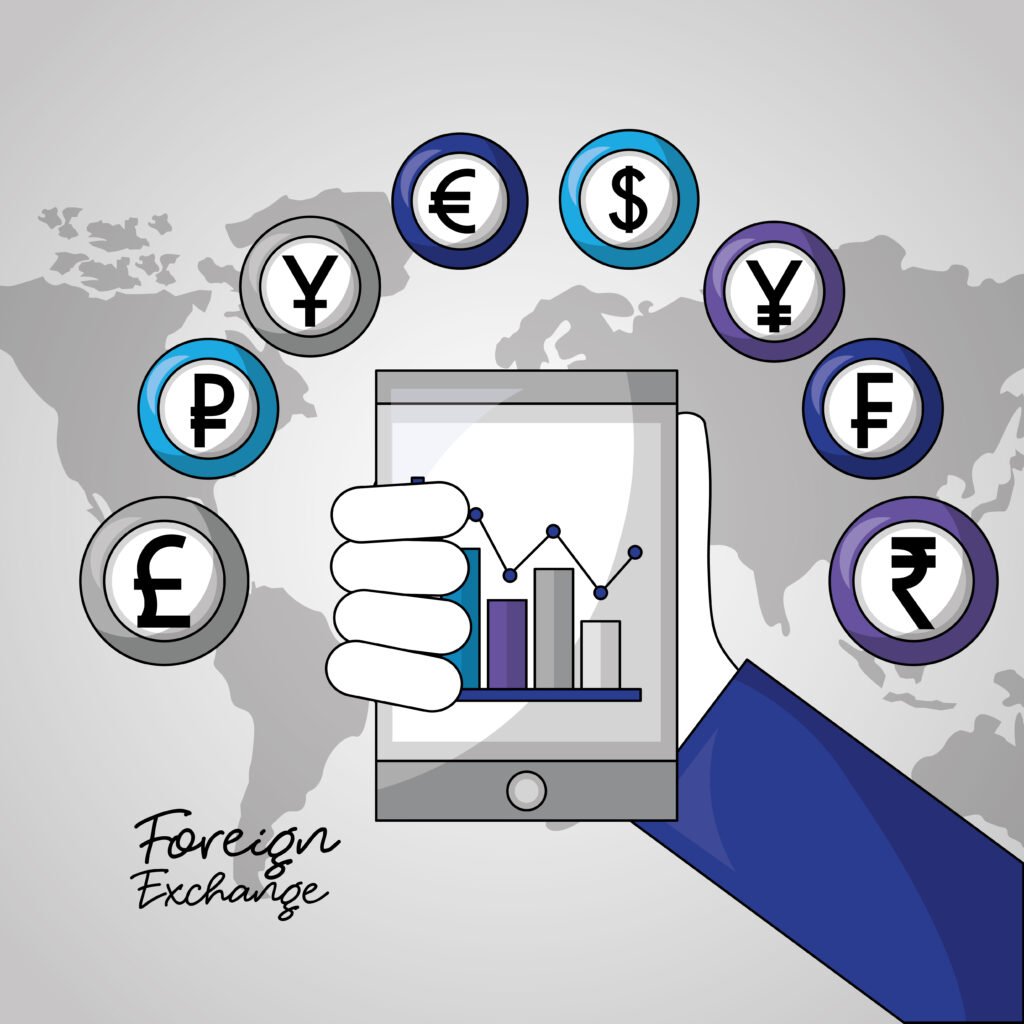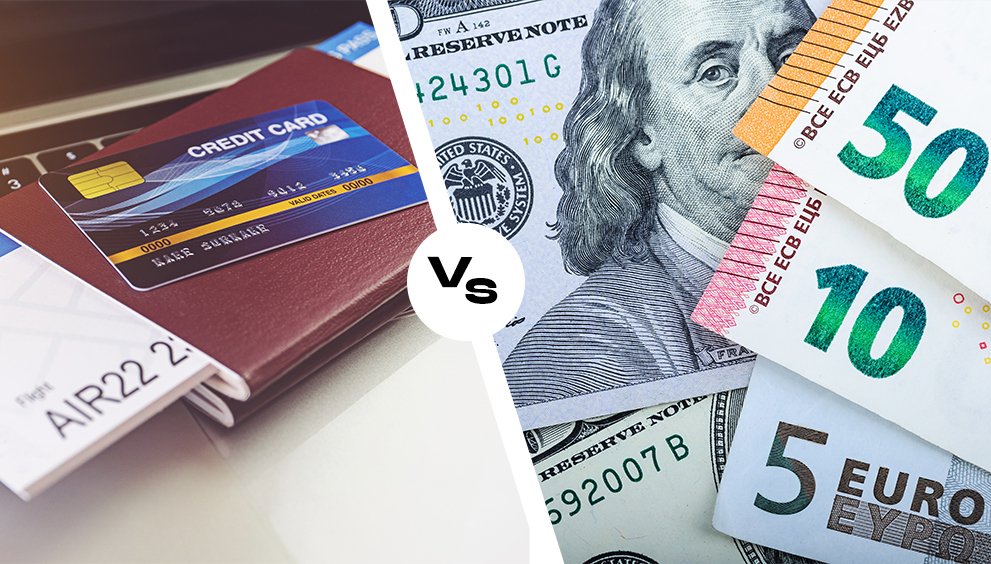Understanding Currency Exchange: Banks vs. FX Brokers
In the currency exchange landscape, both banks and FX brokers play significant yet distinct roles. Banks typically offer currency exchange as part of their broader financial services, catering to various client needs, including personal banking, business financing, and investment services. When customers seek to exchange currency at a bank, they generally benefit from established relationships and trust. However, banks may charge higher fees and offer less favorable exchange rates compared to specialized providers.
When a customer chooses to exchange currency through a bank, they often have to navigate a somewhat lengthy process. Generally, customers are required to present identification, complete necessary paperwork, and potentially wait in line. The exchange rates provided by banks can vary significantly, reflecting not just market conditions but the institution’s internal policies. This integrated approach to banking may be convenient, but it may not always yield the best currency exchange outcomes.
On the other hand, FX brokers primarily focus on currency exchange, often providing more competitive pricing models and tailored services. These brokers often cater to individuals and businesses needing foreign currency for transactions, travel, or investment purposes. Their operations are typically streamlined, with simplified processes that may include online platforms where clients can trade currencies in real-time. Since FX brokers specialize in this domain, they often offer more favorable exchange rates and lower fees, making them an appealing choice for frequent currency exchanges.
Furthermore, the services provided by FX brokers can be more specialized, including advanced features such as margin trading and currency speculation. These brokers may employ various trading platforms that enable clients to monitor market movements and manage currency positions. For individuals or businesses looking for specific currency exchange solutions, FX brokers offer the advantage of flexibility and personalization that banks may not provide.
Cost Comparison: Fees and Exchange Rates
When considering currency exchange, understanding the cost implications associated with banks and FX brokers is crucial for making an informed decision. Traditional banks often impose several fees that can inflate the overall cost of currency conversion. Commonly, banks charge transaction fees, which typically range from 1% to 3% of the transaction amount. Additionally, these institutions may offer less favorable exchange rates, often referred to as hidden costs, which can significantly diminish the value of your exchanged currency. For instance, if the mid-market rate is 1.20, a bank might offer an exchange rate of 1.15, effectively costing you more than if you had exchanged currency at a more competitive rate.
On the other hand, FX brokers are designed to provide currency exchange services with reduced costs in mind. One of the primary advantages of using an FX broker is their ability to offer competitive exchange rates, often closer to the mid-market rate than banks. Many brokers charge lower transaction fees, sometimes as low as 0.5% or even less for larger transactions. This difference can lead to substantial savings, especially for businesses or individuals needing to exchange large sums of money.
Supporting data demonstrates this disparity in costs. For example, a transfer of $10,000 made through a bank charging a 2% fee and providing a reduced exchange rate can lead to a loss of approximately $200 to $300 compared to a scenario where an FX broker is utilized. This significant difference illustrates that individuals and businesses can benefit financially by opting for an FX broker instead of a traditional bank for currency exchange. In considering the long-term implications for frequent currency exchange, choosing an FX broker can be a more cost-effective and financially savvy solution.
Speed and Efficiency: How Quickly Can You Exchange Currency?
When it comes to currency exchange, the speed and efficiency of the transaction process can significantly influence the overall experience for users. In comparing banks and FX brokers, there is a noticeable difference in how quickly transactions are processed. Generally, traditional banks have longer processing times for currency exchanges as they handle a multitude of operations and internal compliance checks. Typically, bank currency exchanges can take anywhere from one to three business days to complete. This delay often frustrates customers, especially in a market where exchange rates can fluctuate rapidly.
On the other hand, FX brokers are known for their efficiency and real-time transaction capabilities. Many FX brokers can execute currency exchanges almost instantly, often within seconds. This rapid execution is particularly beneficial for traders and individuals looking to capitalize on favorable market conditions. For instance, when exchanging currencies for international transactions, the ability to complete exchanges quickly can minimize exposure to adverse shifts in currency values. Such speed is usually enabled by advanced trading platforms equipped with technology that connects directly to liquidity pools in the Forex market.
Timing plays a crucial role in currency exchange, and the choice between a bank and an FX broker can dramatically impact one’s success and satisfaction. For those requiring swift access to foreign currency, an FX broker often provides a superior experience. By minimizing transaction time, individuals can make informed decisions based on up-to-date market conditions. Such efficiency not only optimizes user experience but also leads to better financial outcomes when trading currency. Therefore, in the realm of currency exchange, the effectiveness and rapid execution provided by FX brokers make them a compelling option compared to traditional banks.
Personalized Service and Customer Experience
When it comes to currency exchange, the quality of customer service can significantly influence a client’s experience, particularly in choosing between a traditional bank and a foreign exchange (FX) broker. FX brokers are often recognized for providing a more personalized service, which can be particularly advantageous for both individuals and businesses. These brokers typically employ specialists who focus entirely on currency exchange, which allows them to offer tailored advice and solutions specialized to meet diverse client needs. This expertise can include insight into market trends, guidance on timing exchanges, and risk management strategies, ultimately ensuring that clients can make informed currency transaction decisions.
In contrast, customer service at banks may sometimes lack the level of attention and specialization that FX brokers provide. Banks tend to offer a generalized approach to currency exchange as part of their broader financial services. Therefore, it is not uncommon for clients to encounter long wait times or limited availability of knowledgeable personnel who can assist with complex currency transactions. While banks may offer a reliable and established service, the more individualized and adaptive nature of FX brokers often enhances the overall customer experience.
Furthermore, accessibility is a crucial factor in customer support. Many FX brokers provide online platforms that facilitate seamless transactions, along with dedicated support groups available for individual queries or concerns. This can prove beneficial for clients seeking immediate assistance or expert guidance during critical exchange moments. However, it is essential to recognize that some clients may still prefer the personal touch of speaking to a bank representative. Ultimately, the choice between utilizing a bank or an FX broker for currency exchange can hinge on the importance of personalized service, accessibility, and guidance tailored to individual client needs.


 English
English 






































































































